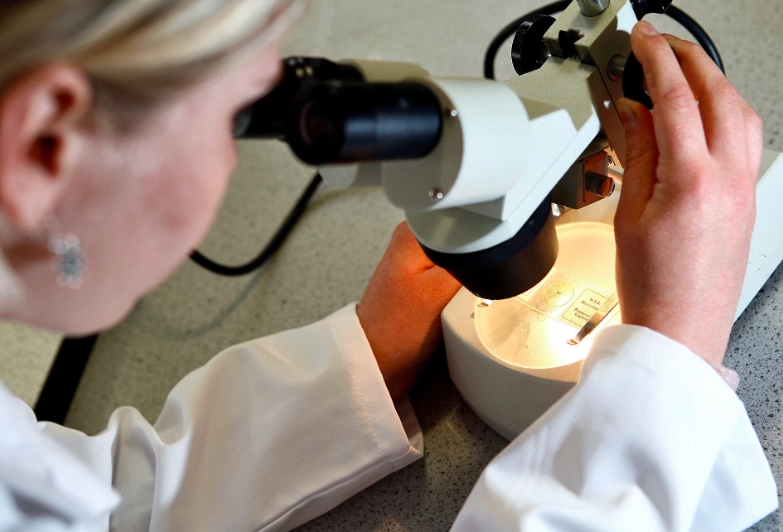Scientists have warned that Scotland is facing a “ticking timebomb” of increased cancer rates, as new research suggests that the number of Scots being diagnosed with cancer could surge by almost a quarter in less than two decades.
The projections of cancer cases in Scotland
According to a report from Public Health Scotland (PHS), the average number of cancer cases, excluding non-melanoma skin cancer, is forecast to increase from more than 34,500 cases in 2019-21 to more than 42,000 cases in 2038-40. This represents a 22 per cent rise in cancer incidence.
The report, using models developed by Cancer Research UK, shows that the rate of cancer cases per 100,000 people in Scotland is expected to rise from 629 in 2019-21 to 640 in 2038-40. Over the same period, cases amongst men are projected to rise from 695 per 100,000 people to 739 per 100,000 people. However, the rate amongst women is projected to fall, from 580 per 100,000 people in 2019-21 to 558 in 2038-40.
The projections are based on historical trends in cancer incidence, together with population estimates and projections for Scotland.
The main causes of cancer in Scotland
The report states that lung, breast and bowel cancers are predicted to continue to be the most common forms of the disease in 2038-40. These three types of cancer accounted for 52 per cent of all cancer cases in Scotland in 2019-21.

The report also identifies some of the major risk factors for cancer, such as smoking, obesity, physical inactivity and alcohol consumption. It estimates that approximately 40 per cent of cancers remain preventable, due to these modifiable lifestyle factors.
The report reads: “While welcome reductions in smoking prevalence have occurred in Scotland, there remains considerable potential to prevent cancers through further reductions in smoking, reducing overweight [levels] and obesity, improving diet and reducing alcohol consumption.”
The impact of cancer on the NHS and the patients
The rising number of cancer cases is expected to put more pressure on the NHS and the cancer services, which are already struggling to cope with the demand and the backlog caused by the Covid-19 pandemic.
Kate Seymour, head of advocacy at Macmillan Cancer Support, said the figures highlighted a long predicted trend of rising incidence “primarily because of our ageing population”.
“This is already putting even more demand on cancer services, with waiting time targets being missed and the system struggling with the ever increasing number of people being diagnosed,” she said.
She added that the cancer workforce was also facing challenges, with vacancies left unfilled due to many of the professionals reaching retirement age and staffing levels already stretched to breaking point.
She urged the Scottish Government to build a cancer system that is fit for the future and mirrors the population it will be serving – older and with more complex needs.
The reaction of the opposition parties and the public
The opposition parties have criticised the Scottish Government for failing to address the crisis in the cancer care and the NHS, and demanded urgent action to tackle the twin challenges of delayed discharge and the backlog of operations.
Labour health spokesperson Dame Jackie Baillie said cancer treatment waiting times were already “a ticking timebomb” and there were “far too many avoidable and unnecessary deaths from cancer each year”.
“Scotland’s cancer waiting times have already skyrocketed and this is only going to get worse unless real steps are taken to address the crisis by the SNP,” she said.
Scottish Conservative deputy health spokesperson Tess White said: “These alarming figures will surprise no one working on the frontline of Scotland’s NHS – and the blame for them lies squarely at the SNP’s door.”
She said delayed discharge was having a “disastrous impact” on the NHS, while the backlog of operations had reached “staggering levels”.
She called on health secretary Michael Matheson to “urgently explain how he intends to tackle these twin crises in Scotland’s NHS”.
Scottish Liberal Democrat leader Alex Cole-Hamilton said “many Scots diagnosed with cancer are being forced to wait day after day for the help they need”.
He insisted: “Ministers must pull out all the stops to bring down waiting times and ensure that all those eligible for screening programmes are being invited and encouraged to attend.”
The response of the Scottish Government and the future plans
A Scottish Government spokesperson said cancer was “a priority” and “our focus remains on increasing survival rates across all cancers”.
“We published our new ten-year cancer strategy in June this year, which takes a comprehensive approach to improving patient pathways, from prevention and diagnosis through to treatment and post-treatment care,” the spokesperson said.
“The strategy aims to improve cancer survival and provide excellent, equitably accessible, care across Scotland. An initial three-year action plan was published alongside the strategy and sets out a range of actions linked to our overall strategic aim.”
The spokesperson also highlighted the importance of early diagnosis and the investment in the Detect Cancer Earlier (DCE) Programme, which adopts a whole systems approach to diagnosing and treating cancer as early as possible.
The spokesperson said the Scottish Government was also redesigning services through optimal cancer diagnostic pathways, establishing rapid cancer diagnostic services and urology diagnostic hubs.
Will these measures be enough to prevent the ticking timebomb of cancer in Scotland? Only time will tell.


















